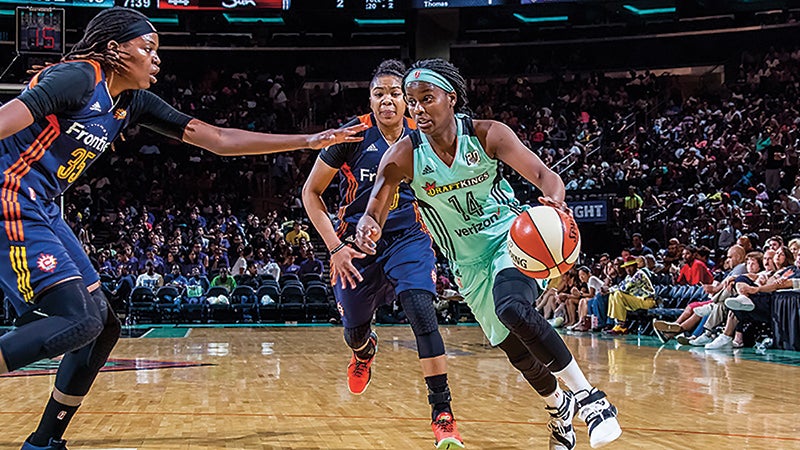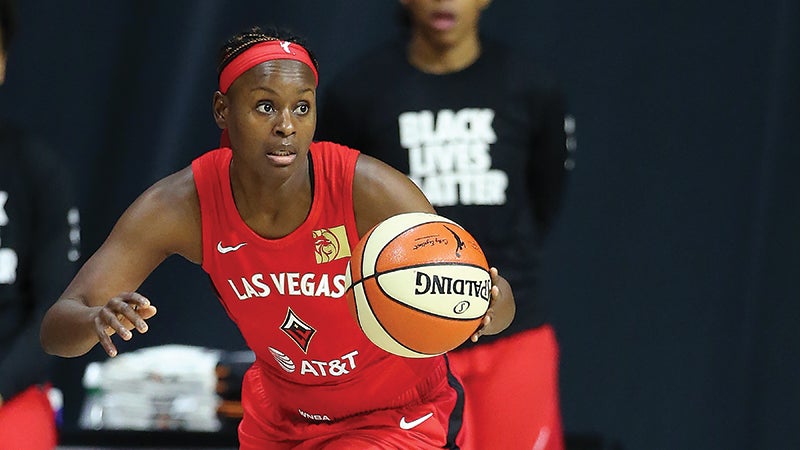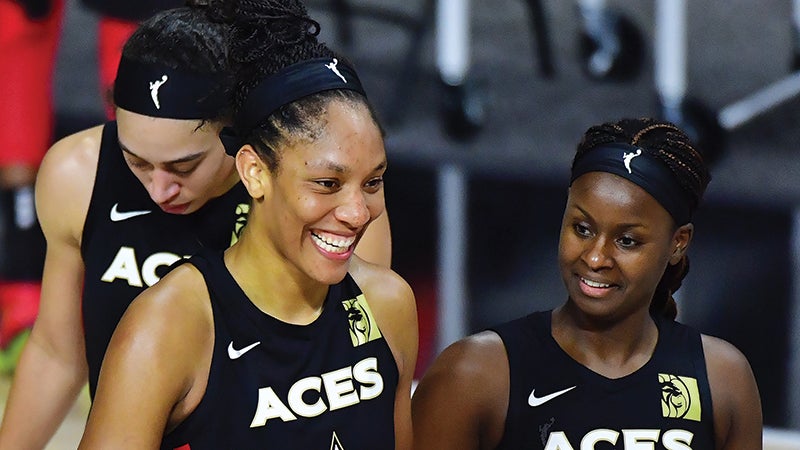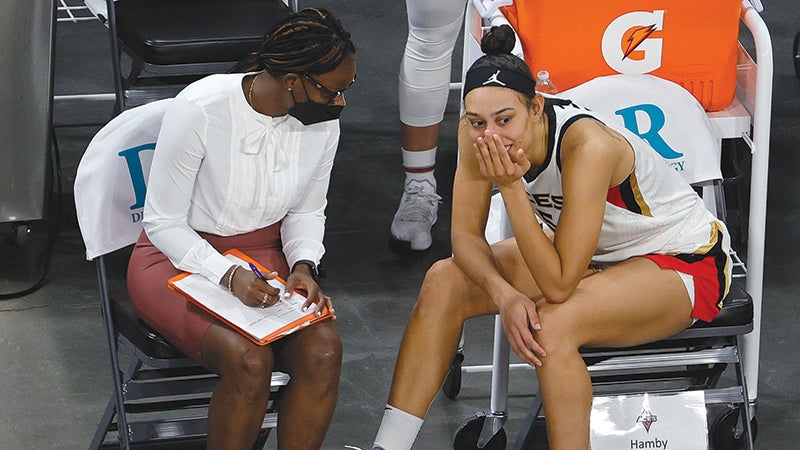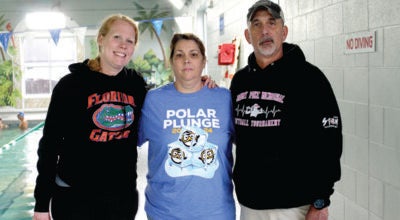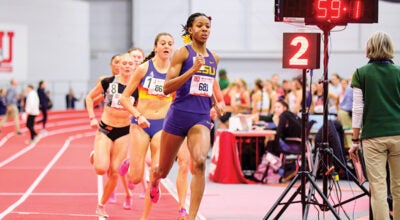‘Like Blood on Paper’
Published 7:34 pm Wednesday, September 15, 2021
|
Getting your Trinity Audio player ready...
|
Sugar’s life hasn’t always been so sweet, but she’s using her story to help others on and off the court
Her story didn’t start in therapy, but it was a catalyst to get it out.
And Sugar Rodgers is using it in a transformative way to help others, especially young people who may be growing up in similarly difficult situations, by offering a compelling message of perseverance through her book, “They Better Call Me Sugar: My Journey from the Hood to the Hardwood.”
The Suffolk native who grew up in the Williamstown neighborhood — attending school at Elephant’s Fork Elementary, King’s Fork Middle and King’s Fork High — manifested her dreams of being a standout basketball player and, with the wisdom of therapy and life experience, grew to understand that the sport was an escape from her difficult circumstances despite seemingly long odds given her upbringing.
Rodgers lived in the midst of violence, drugs and poverty, and, at 14, on July 14, 2005, lost her mother to lupus — 14 has been her jersey number ever since. She bounced around several homes in the city and in Portsmouth until getting to college at Georgetown, where she received encouragement to seek counseling and share her experiences. It began a truly therapeutic rise that has allowed her to gain a sense of equilibrium and perspective.
“Therapy is very taboo in the African American community, and we’re taught to compartmentalize everything that we have from birth,” Rodgers said. “You can’t tell people what’s going on inside your household or you would get in trouble. You can’t go outside and gossip to people about things that are happening to you.
“And when I got to college, one of my coaches recommended it. Me being so ignorant to the fact, I’m like, ‘I’m not going to talk to a white man about my problems and/or white woman,’ you know, ’cause that’s just how I viewed it. I was like, ‘I’m not.’ But he was like, ‘‘If you go, you’ll find yourself in a better place mentally.’”
Starting out playing basketball for the Suffolk Blazers, Rodgers would go on to play at King’s Fork High School, for Boo Williams’ AAU team, and then for his sister, Terri Williams-Flournoy, at Georgetown in Washington, D.C., before becoming, yes, the 14th overall pick in the WNBA draft when she was selected by the Minnesota Lynx.
Though not a starter with the Lynx in 2013, she was part of their WNBA championship team before she was traded to the New York Liberty, where she emerged professionally over the course of the next five seasons, including a 2016 season in which she averaged 14.6 points per game and then being named an All-Star and Sixth Woman of the Year in 2017. For four of those seasons, she played under coach Bill Laimbeer, and she reunited with him for the last two seasons of her playing career with the Las Vegas Aces.
She is still with the Aces as an assistant coach to Laimbeer, and she recently was named an assistant coach at Georgetown. Laimbeer has referred to Rodgers as a “student of the game.”
But Rodgers is as much a student of life, and despite how arduous it has been, she has, indeed, come up Aces.
“I used basketball as a vehicle, to a degree,” Rodgers said. “When I was younger, I didn’t see basketball like that. I didn’t play basketball because I loved it. I played basketball because it saved me. I played sports because it saved me from my situation. That was the only way I was able to get some peace and not have to worry about reality.”
She would be at different parks playing, spending time with her friends, playing AAU, whatever: “Reality didn’t set in,” Rodgers said, “until I left the basketball court.”
Though she has set records, won a championship and has been an All-Star on the court, Rodgers is much more than the sum of her basketball career. She turned herself from an indifferent scholar to one with a bachelor’s degree in English — “I was able to be the first generation in my family to graduate college” — and a master’s in sports industry management, and she uses her life and playing experience to her advantage now that she’s coaching.
“Those things for me have been the hugest accomplishments in my life, because when I went to school, in high school, I really didn’t take it serious, but I take education very serious, being very knowledgeable of certain things, now. And that’s just me and how I look at it. Knowledge is power.”
That was something she picked up from Georgetown’s legendary coach, John Thompson Jr., during numerous conversations the two had while she was playing for the Hoyas, and it’s been something that has resonated with her ever since.
The first time she went to therapy, she was still a reluctant participant. She was ready enough to go, but not ready to speak. But she recognized that she needed help, and learned about how therapy could help.
She credits her therapist with getting her to open up, but instead of speaking to him, she began, with his encouragement, to write down her story.
“When I wrote this story down, it was almost like blood on paper,” Rodgers said. “I’m like, ‘man, I went through all of this. I didn’t have (much). Then my mom died, and I became homeless. I didn’t have time to really hone in on all these problems, and I didn’t know that they were creating more problems for me in the future.”
She wants her story to reach young girls and boys in similar situations, to show that no matter the situation, they can accomplish something great in life, that they aren’t alone.
“Some people feel like they’re alone, but they don’t have the support,” Rodgers said. “It’s more so saying ‘look, you’re not alone. I went through that. You can get through it. ’”
And her advice to those young people?
“Keep pushing, keep going forward,” Rodgers said. “The things that happen, they’re temporary, and somebody’s going to hear you, somebody’s going to feed you, somebody’s going to help you. Don’t be afraid to ask for help, especially when you need it.”
Rodgers said her guarded nature didn’t allow her to build relationships, as she didn’t know who she could talk to, who she could trust and who really cared about her. She wants to be able to build relationships with people on the job, with colleagues and be the best person she can be for the day when she starts a family.
“I want to be able to do certain things that I felt like my childhood trauma always hindered me from,” Rodgers said. “I was just like, I went to therapy and it was all she wrote.”
Or rather, all Sugar wrote.


